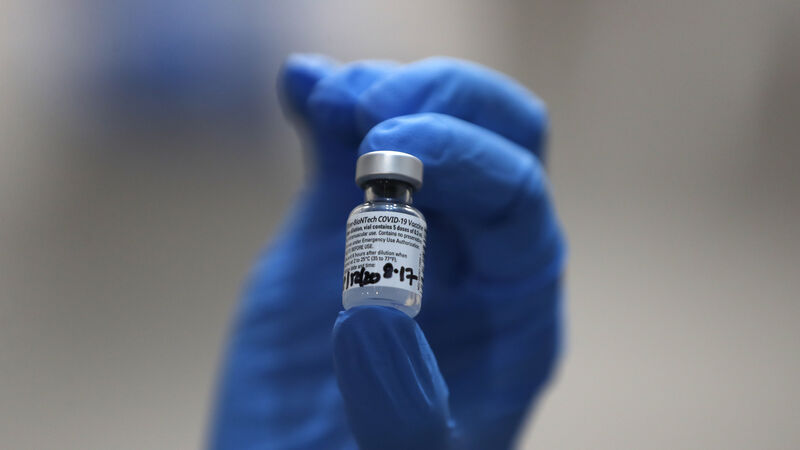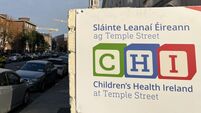'A moment of hope': First vaccines to be rolled out before year end

Under the plan, there will be three phases - the initial rollout, a "ramp up" phase and open access. File picture: AP
Ireland's Covid-19 vaccine plan, which outlines how up to 14 million doses of approved vaccines will be administered, has been published.
Under the plan, there will be three phases - the initial rollout, a "ramp up" phase, and open access.
The highest priority groups will be vaccinated in the first phase, meaning that those in nursing homes and frontline healthcare workers will be vaccinated first.
Health Minister Stephen Donnelly said that the vaccination programme will be "bigger and more complex" than previous programmes. He said that it will "play a central role in our exit from the pandemic".
"Over time it will allow us to return to re-open our society and to reconnect in the ways we once took for granted," Mr Donnelly said.
"It's been a difficult year for all of us, right across the country. And we're now at the end of this year where many have mourned the loss of loved ones.
"It's good to be coming here in a moment of hope."
He said that the country's focus was now on the European Medicines Agency (EMA), which may approve a vaccine as early as next week. The first vaccines could be administered within days of this approval, meaning that some people in Ireland could be vaccinated before the new year.
"We have a plan which is designed to be flexible. It is possible that if the EMA brings this forward, initial vaccination, a small number of doses, could begin before the new year."
Mr Donnelly paid tribute to Professor Brian McCraith who headed the high-level taskforce which produced the plan. He said that the plan was "Team Ireland at work".
Under the plan, vaccinations will be given to people at community nursing centres, in hospitals and at mass vaccination centres. The HSE's Paul Reid said that examples of places which could be used are Citywest and the National Exhibition Centre in Cloghran, both in Dublin. GAA stadiums could also be used, he said.
The strategy says that retired medical personnel could be called on to administer vaccines. However, most of the work will go to current medical professionals and pharmacists who will give the jabs to people.
Under what is called the "vaccine pathway" the plan outlines when sections of society can apply to receive their vaccination.
It says: "The goal is a standard registration process where all key identification data, demographic data, any required medical information and the informed consent is commenced."
The person will then be offered a vaccination at a named centre.
Upon arrival, the person's registration details will be checked, they will be given their jab and be discharged within 15 minutes. If receiving one of the vaccinations which requires two doses, they will be reminded of their second date three weeks later and the process will begin again.
Dr Lorraine Nolan of the HPRA said that there is still much research to be done on the issue of vaccines in pregnancy and as of now it is not recommended.
However, the minister warned that public health guidelines needed to be adhered to going forward.
"I want to echo the words of others who've said we need to keep our shape. The level of the virus when we begin to vaccinate matters. While we look forward, it's important that we keep minding each other - keep keeping each other safe."





